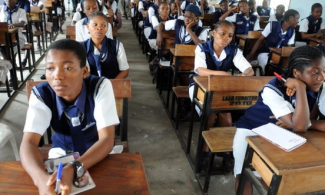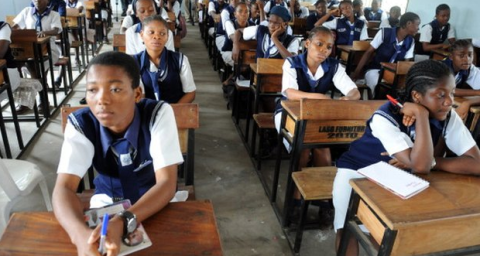
To ensure proper use of funds earmarked for the provision of Universal Basic Education in Kaduna State, a Civil Society Organization, the Resource Centre for Human Rights & Civic Education (CHRICED) has launched an innovative data-driven project.
To ensure proper use of funds earmarked for the provision of Universal Basic Education in Kaduna State, a Civil Society Organization, the Resource Centre for Human Rights & Civic Education (CHRICED) has launched an innovative data-driven project.
Addressing newsmen in Kaduna, Executive Director of the group, Comrade Dr. Ibrahim M. Zikirullahi stated that the project would provide the platform for communities in Kaduna State to track and report on spending by the relevant agencies, especially the State Universal Basic Education Board.
Comrade Zikirullahi pointed out that the organization decided to put the spotlight on basic education delivery because it is the bedrock of education in Nigeria.
“It provides three years of Early Child Development, and nine years of formal schooling. It is the Federal Government policy for ensuring every child of school age has access to quality basic education. However, while the problem of inadequate funding has been implicated as one of the reasons for the low quality of service delivery in the Universal Basic Education (UBE), corruption and its damaging effects have derailed the potential of the policy to deliver quality basic education to citizens."
“This problem merits intervention due to its serious consequences for the millions of pupils produced by the basic education system, for the civil security of the society, and for our national development- hence the project: Social Mobilization for Accountability in the Implementation of Universal Basic Education Funds in Kaduna State.”
According to the CHRICED helmsman, for the next three years, the innovative data-driven project, through expenditure tracking, research, training, media engagement and robust community dialogue sessions, will address the impacts of corruption on basic education delivery and outcomes in Kaduna State.
He said: “Working with stakeholders and communities in the three focal local governments of Kauru, Kubau, and Zaria in Kaduna State, the aim of the data-centered monitoring of the UBE system is to strengthen accountability and transparency in the management of UBE funds in Kaduna State. The project’s ultimate goal is to minimize corruption and financial leakages while improving the quality of service delivery and outcomes of basic education.”
Also, the CHRICED helmsman emphasized that apart from the fact that it was the duty of government to provide basic social services, he noted that Section 18 of 1999 Constitution (as amended), under the fundamental objectives and directive principles of state policy is explicit about the need for government to direct its policy towards ensuring there are equal and adequate educational opportunities at all levels.
“Specifically Section 18 (3a) provides that “government shall strive to eradicate illiteracy; and to this end Government shall as and when practicable provide; a) free, compulsory and universal primary education.” There can be no debating the fact that among the many other fundamental objectives and directive principles of state policy, the directive on UBE is one on which governments at both Federal and State level have taken action by devoting resources to the realization of the objective. This much we can see from the UBE Act of 2004, which has the laudable objectives of working towards ensuring unfettered access to nine (9) years of formal basic education, the provision of free, Universal Basic Education for every Nigerian child of school going age and the drastic reduction in the incidence of drop-out from the formal school system."
He continued: “It is however pertinent to state that these objectives may not be achieved if Nigerian citizens, the ultimate target of government’s intervention in the sector do not take the interest in closely monitoring and tracking to ensure the duty bearers in the implementation agencies put these resources to proper use. The CHRICED project on strengthening accountability and transparency in service delivery in this sector would provide the needed tonic for citizens to take a greater interest in how public resources are used to deliver this critical service, upon which the future of millions of Nigerian children depends.”
The 3-year project is supported by ‘The John D. and Catherine T. MacArthur Foundation’, a United States based independent philanthropist organization.
The project launch was attended by over a hundred participants drawn from critical stakeholders such as Kaduna State Ministry of Education, Science and Technology, Kaduna State House of Assembly Committee on Poverty Alleviation and SDGs, Kaduna State Universal Basic Education Board (SUBEB), School Based Management Committees (SBMCs), young pupils from primary and secondary schools, CSOs, media, religious and community leaders.
